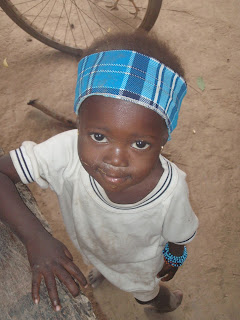This past weekend would have marked the one year anniversary to my arrival in Mali and the start of one amazing, unforgettable journey- a journey that began with 23 wide-eyed, nervous strangers in a D.C hotel and ended (albeit in tears and heartbreak) with a plethora of relationships and lifelong friends all bound to a country, culture and people we have come to love. Here is the breakdown of the experience that taught me that life can take an unexpected turn at any moment, and you shouldn’t take for granted the time that you do have. Life is too short not to follow your dreams and be happy.
On Thursday, March 22nd, I woke up in my mud hut to the BBC World Radio breaking the news of a coup d’état and overthrow of the Malian president and government by a military junta. Unable to access any further information, I continued my day waiting for updates via cell phone. A mere 48 hours after the coup, all volunteers were told to consolidate to our respective regional capitals. We begrudgingly left our villages, confused and angry for the disruption to our projects, plans and lives. We arrived with questions and confusion. The media, Peace Corps, and frankly most of the world had been blind sighted by the sudden events and upheaval. Mali was considered Africa's model democracy. With the democratic presidential elections only a month away, this event seemed untimely and unnecessary. As our access to information expanded and came flooding in, we found out that in a matter of hours, the government had been overthrown, the constitution suspended, the national television and radio station seized, a nationwide curfew enforced, and all borders closed.
The days of consolidation were spent checking the news constantly and obsessively. Every Peace Corps and U.S Embassy email and text message was evaluated and scrutinized as we attempted to decipher our ominous fate. While we rode the emotional rollercoaster of optimistic highs (returning to site) and dreaded lows (the fear of evacuation) as best we could, there is nothing that can really prepare you for the gut-wrenching news of an impending evacuation. That the peaceful, simple life you were leading will suddenly become a big mess. It is a change that happens so suddenly and with such immediate effects, that you are left numb and in shock. After forty years of uninterrupted service to the people of Mali, Peace Corps was evacuating. And it was not a decision made lightly. We left the country with ECOWAS sanctions going into effect- a result that led to major disruptions to the banking sector, closing of the borders, depleting supplies of gas, limited public transportation, and increases in prices in food and other supplies. It was decided that Peace Corps could not reasonably expect to function and provide at least minimal support to the Volunteers.
For many of our Malian friends and counterparts in our communities, our evacuation was difficult to understand. The fighting, protests, and minimal violence has been, even now, contained almost entirely to the capital, Bamako. Literally nothing has changed in my village. This season’s wedding ceremonies are coming to a close, and as the first of the heavy rains begin to fall and nourish the dry, arid land, preparations for the next farming season are being made.
Exactly one month after the coup d’état, I returned home. It has taken some time for me to recover both physically and emotionally from my time in Mali. I came home exhausted-tired of being frustrated, tired of crying, and tired of saying goodbye. While everyday is a little easier, it is still difficult to accept that while I can return to the comforts of home, my Malian friends and family are stuck to face the harsh repercussions of the coup d’état, repression in north and the food crisis in the Sahel.
Our amazing country director wrote to us saying that he had a strong hunch that a number of us will find work, research, or other projects or activities that will one day soon bring us back to Mali. I can only hope that I am that fortunate, because there is definitely something addictive about Malian culture and hospitality. It is a place that changes you forever. Mali is one of the top twenty poorest countries in the world, but their culture, values and traditions are extremely rich. They withstand extreme hardship with the largest and brightest smile you have ever seen. They take you in as part of their family, change you for the better, and teach you valuable lessons. During our Close-of-Service conference, one of our counselors compared Mali to our first love. And it is true. It is a great love-a love that I will never forget and always have.
 |
| My host sister and her two daughters. Pure happiness. I will miss you. |































